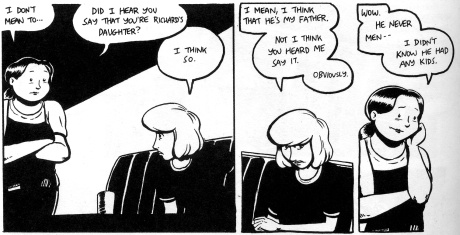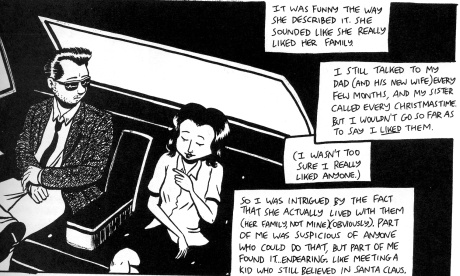Intro
About Me
The Manifesto
Previous Posts
The trouble with hoax
Please, tell them I fought bravely
Wundergrammar: Auxilaration!
Corks and clear heads
Hoisted by someone else's pike
Good Stuff: 8/17/07
The apartment of the future
On Onboarding
Josie and the Usage Quirks
Good Stuff: 8/07/07
Back to Main
Delicious
Links
Bartleby
Common Errors in English
Netvibes RSS Reader
Online Etymology Dictionary
Research and Documentation
The Phrase Finder
The Trouble with EM 'n EN
A Capital Idea
Arrant Pedantry
Blogslot
Bradshaw of the Future
Bremer Sprachblog
Dictionary Evangelist
Double-Tongued Dictionary
Editrix
English, Jack
Fritinancy
Futility Closet - Language
Language Hat
Language Log
Mighty Red Pen
Motivated Grammar
Omniglot
OUPblog - Lexicography
Style & Substance
The Editor's Desk
The Engine Room
Tongue-Tied
Tenser, said the Tensor
Watch Yer Language
Word Spy
You Don't Say
Dan's Webpage
The defensive obviously in Tricked
Thursday, August 30, 2007 7:27 AM
Think reactive, not reactionary
Thursday, August 30, 2007 7:27 AM
I just finished reading Tricked, Alex Robinson's second graphic novel. I've already blogged about his previous (and IMHO superior) effort, Box Office Poison, because of its frequent, apparently intentional use of that runtogether-of-runtogethers, alot.
Whether this spelling reflected Robinson's personal opinion on the matter or was merely character-correct, it was still a bold choice.
I looked through Tricked twice (it's interesting how we no longer say scanned here) for instances of either a lot or alot. I didn't find anything, but on his blog, Robinson uses a lot.
Assuming that alot did reflect some descriptivist leanings, has this erstwhile People's Hero undergone a prescriptivist conversion? There's a quirk in Tricked that makes me suspect he has. Spoilers, ho!
Check out this deployment of obviously:

This happens several times in the book. A character will say something that has both an obvious, correct interpretion and an unlikely, yet still grammatically correct interpretation, and then make a point of how they can see both interpretations and are smart enough to go with the obvious, correct one.
Here's another example, in parentheses at the bottom:

This only happens about three or four times in the novel, but it's enough to stand out. I know that it's probably meant to be amusing... but there are a lot of ways to be amusing and this was an odd choice. Why would anyone think like this?
These characters seem to be constantly on guard against improbable but grammatical misinterpretations — putting aside deeper readings here, it really makes me wonder if Robinson had a bad experience with an overzealous editor. Something that might have left him with a copy editor's eye and this prophylactic tic.
Whether this spelling reflected Robinson's personal opinion on the matter or was merely character-correct, it was still a bold choice.
I looked through Tricked twice (it's interesting how we no longer say scanned here) for instances of either a lot or alot. I didn't find anything, but on his blog, Robinson uses a lot.
Assuming that alot did reflect some descriptivist leanings, has this erstwhile People's Hero undergone a prescriptivist conversion? There's a quirk in Tricked that makes me suspect he has. Spoilers, ho!
Check out this deployment of obviously:

This happens several times in the book. A character will say something that has both an obvious, correct interpretion and an unlikely, yet still grammatically correct interpretation, and then make a point of how they can see both interpretations and are smart enough to go with the obvious, correct one.
Here's another example, in parentheses at the bottom:

This only happens about three or four times in the novel, but it's enough to stand out. I know that it's probably meant to be amusing... but there are a lot of ways to be amusing and this was an odd choice. Why would anyone think like this?
These characters seem to be constantly on guard against improbable but grammatical misinterpretations — putting aside deeper readings here, it really makes me wonder if Robinson had a bad experience with an overzealous editor. Something that might have left him with a copy editor's eye and this prophylactic tic.
Labels: geekery, grammar politics
Think reactive, not reactionary


